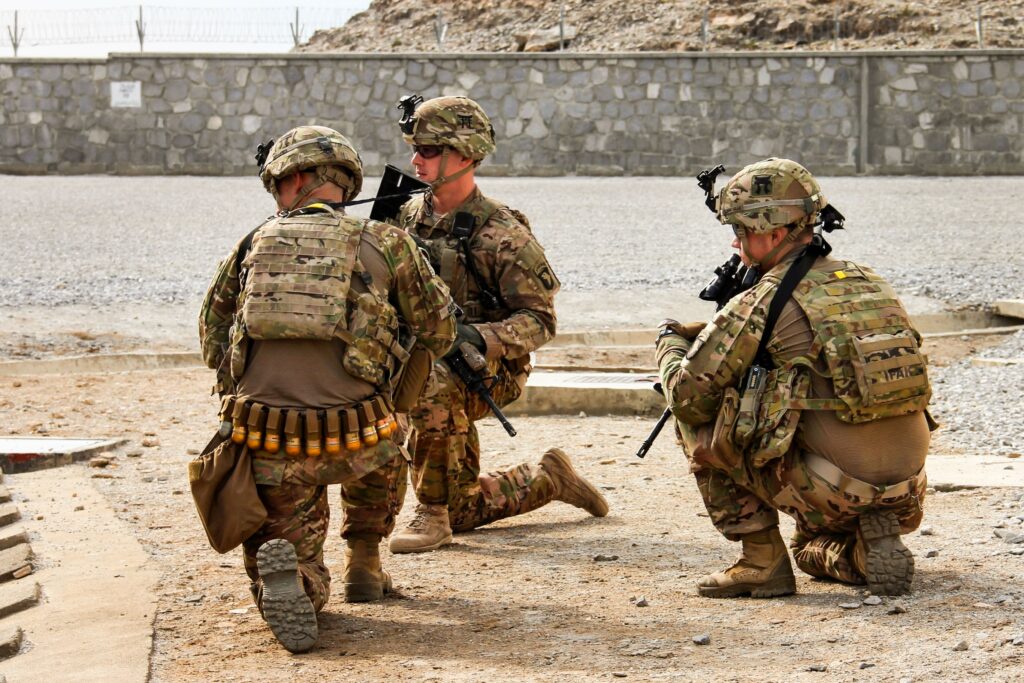How did the United States become embroiled in “endless wars” in Afghanistan and Iraq which, when they ended, left many wondering if they were worth it?
Much has been written about the Global War on Terrorism, foreign policy misadventures, and American hubris. However, a contributing factor to these wars which has been overlooked is a political decision made over 50 years ago: ending the draft and converting to an all-volunteer armed force.
Imposition on Freedom
Some conservatives in the mid-20th century opposed the draft as an alleged imposition on individual freedom.
Ohio’s “Mr. Republican” Senator Robert Taft said in a 1940 debate that the compulsory draft is “far more typical of totalitarian nations than of democratic nations.” He called it “absolutely opposed to the principles of individual liberty which have always been considered part of American democracy.”
In 1966, Nobel Prize-winning economist Milton Friedman pronounced the draft “inconsistent with a free society.”
Two years later, Columbia University Professor Martin Anderson advised Republican presidential candidate Richard Nixon that a draft of two years of involuntary service “is inimitable to the principles of freedom that are the moral foundations of our Republic.” He called conscription “an abrogation of men’s rights” that would establish the principle that a men’s life is at the state’s disposal.
Anti-War Activism
At the other end of the political spectrum, the Vietnam War prompted anti-war activists to oppose the draft.
“The all-volunteer force is to a large extent a political child of the draft card burning, campus riots and violent protest demonstrations,” Senator Sam Nunn of Georgia told Congress in 1973.
Historians B.D. Rostker and K.C. Yeh wrote that as the “[Vietnam War] went on, more young Americans became subject to an institution that they had been able, up to that point, to largely ignore. It was an institution that tied them to an unpopular war.”
When I was in college and medical school, my male classmates and I worried: Were we going to get drafted and sent to Vietnam? What was your draft lottery number? Should we join the reserves or National Guard to reduce the chance of being sent to Vietnam?
Personal Stake
Attorney and later cabinet member Joseph Califano, Jr., predicted in 1973 that an all-volunteer army would result in writing into law the “concept of one man’s money for another man’s blood.”
What turned the nation around on Vietnam, Califano Jr. argued, was “the realization that the vast middle class of America would not permit their sons to die in a war.”
An all-volunteer force, on the other hand, would “effectively reduce the need for future leaders to be concerned… about [their] judgment about foreign adventures, at least until those adventures are so far along that they will be virtually impossible to stop,” he continued. According to Califano, it was no accident that the campus anti-war movement’s ardor ended with the advent of the all-volunteer force.
For many Americans, the “endless wars” in Afghanistan and Iraq were not their concern. Their children were neither in the military nor were they at risk of being drafted. Unlike my generation, no college students were lying awake at night, fearful of being drafted and sent to war. People no longer have a personal stake in war.
Participation in Democracy
In many ways, the all-volunteer armed force has been a success. Soldiers and sailors of the all-volunteer force have higher scores on standardized IQ tests than during the draft. The percentage of recruits with a high school diploma has increased. The all-volunteer force is demographically representative of America — with the exception of under-representation of the children of the poorest and the wealthiest quintiles of the population.
However, while the all-volunteer military has improved our troops’ professionalism, it has come at a cost to citizen participation in democracy. We must maintain civilian control over the military. Congress must reassert its power to declare or not declare war, as mandated in the Constitution, to avoid further “endless wars.”
Without a draft, we must take on the most critical job in a democracy, that of citizens, and speak our minds on military adventurism.
The views and opinions expressed here are those of the author and do not necessarily reflect the editorial position of The Defense Post.
The Defense Post aims to publish a wide range of high-quality opinion and analysis from a diverse array of people – do you want to send us yours? Click here to submit an op-ed.




